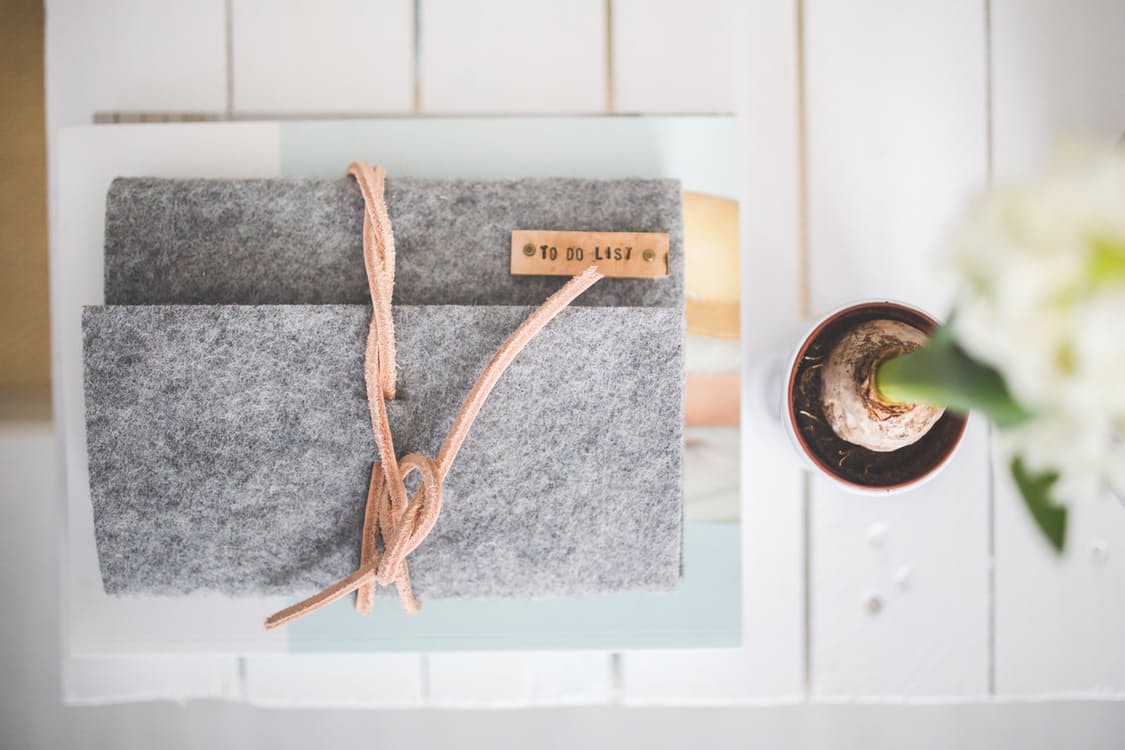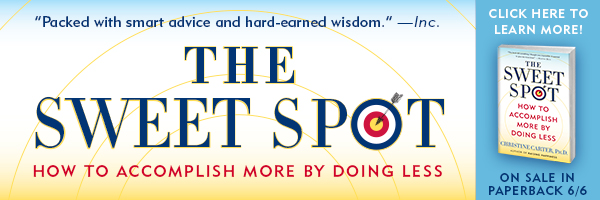Double down for one more week and reap the benefits.
 This week is an important one for people who made New Year’s resolutions (I hope that’s you)! If you can keep your resolution for the rest of January, you’ll be much more likely to end the year having kept it, too.
This week is an important one for people who made New Year’s resolutions (I hope that’s you)! If you can keep your resolution for the rest of January, you’ll be much more likely to end the year having kept it, too.
Here are two tips for hanging in there if you are starting to falter:
1. Remember that there is a world of difference between lapse and relapse. A lapse is a small slip in behavior, and nearly everyone has them. Most people slip here and there a lot in January. A relapse is a full fall: You give up, you go back to your pre-resolution behavior.
If you’ve had a few slips, ask yourself why. What can you learn from your mistakes? Were you on vacation? (That’s always hard.) Do you not have a specific enough plan for how to fulfill your resolution? What temptation or situation should you avoid in the future? Remember: Lapses are to be expected. They are a part of the process. Don’t freak out or give up if you have a bad day here or there.
2. Beware the “what the hell effect.” It’s really important not to let a temporary lapse become something bigger than it is. Say you’ve sworn off sugar, but one morning you eat a pie for breakfast. You’re at risk for what researchers formally call the Abstinence Violation Effect (AVE), and jokingly call the “what the hell effect.” If you’ve already blown your diet today, why not go hog wild? What the hell–you can begin again tomorrow, right?
Wrong. The more damage you do during your binge, the more likely you are to slip again the next day, and the less confidence you’ll have in yourself that you can change. As soon as you notice a slip, try the following to avoid getting to that “what the hell” moment:
- Forgive yourself. Remind yourself that lapses are a part of the process, and that feeling guilty or bad about your behavior will not increase your future success. (In fact, self-criticism actually decreases future success.)
- Rededicate yourself to your resolution (now, in this instant, not tomorrow). Why do you want to make the changes that you do? How will you benefit? Do a little deep breathing and calm contemplation of your goals.
- Make a plan for the next time you will face a similar challenge. What will you do differently? How will you avoid the temptation in the future? What have you learned from your slip?
Take Action: Learn more about how to successfully make change this year. Read the full post from my blog here, or enroll in my FREE Cracking the Habit Code online class. Register by Friday to access the class for free for 21 days! Hurry, after Friday it will only be available to premium class participants.
Join the Discussion: What did you resolve this year? How is it going? Share your success story in the comments!





 A terrific antidote — that we all have with us all the time — is simple meditation. Scores of studies have shown the benefits of meditation to be broad and profound: meditation lowers our stress and anxiety, helps us focus, and, ironically, makes us more productive. Meditation even makes us healthier! After meditating daily for eight weeks, research subjects were 76% less likely than a non-meditating control group to miss work, and if they did get a cold or a flu, it lasted only five days on average, whereas the control group illnesses lasted an average of eight.
A terrific antidote — that we all have with us all the time — is simple meditation. Scores of studies have shown the benefits of meditation to be broad and profound: meditation lowers our stress and anxiety, helps us focus, and, ironically, makes us more productive. Meditation even makes us healthier! After meditating daily for eight weeks, research subjects were 76% less likely than a non-meditating control group to miss work, and if they did get a cold or a flu, it lasted only five days on average, whereas the control group illnesses lasted an average of eight. I know, I know, you don’t have time to sleep. You’re very busy and important. Or you think you are the exception to the rule—that you are a part of the 2.5% of people that really does feel rested with less than the 8+ hours of sleep that doctors and sleep experts prescribe. Maybe you wish you could get more sleep, but you just can’t find a way to put sleep above your other priorities.
I know, I know, you don’t have time to sleep. You’re very busy and important. Or you think you are the exception to the rule—that you are a part of the 2.5% of people that really does feel rested with less than the 8+ hours of sleep that doctors and sleep experts prescribe. Maybe you wish you could get more sleep, but you just can’t find a way to put sleep above your other priorities. A buddy recently stopped by for tea and was telling me in a sweet moment how much he loves his wife. This is someone who has written books about relationships, a guy who has actually figured out how to make a marriage great. He said something that really struck me.
A buddy recently stopped by for tea and was telling me in a sweet moment how much he loves his wife. This is someone who has written books about relationships, a guy who has actually figured out how to make a marriage great. He said something that really struck me.
 This week is an important one for people who made New Year’s resolutions (I hope that’s you)! If you can keep your resolution for the rest of January, you’ll be much more likely to end the year having kept it, too.
This week is an important one for people who made New Year’s resolutions (I hope that’s you)! If you can keep your resolution for the rest of January, you’ll be much more likely to end the year having kept it, too. If I had to guess which personality trait best predicts a long, healthy life, I’d probably guess something that relates to joy or creativity or curiosity. So I was surprised to see that the characteristic that is most closely tied to longevity is conscientiousness (out of the “big five” personality traits that psychologists typically look at — openness, conscientiousness, extraversion, agreeableness, and neuroticism).
If I had to guess which personality trait best predicts a long, healthy life, I’d probably guess something that relates to joy or creativity or curiosity. So I was surprised to see that the characteristic that is most closely tied to longevity is conscientiousness (out of the “big five” personality traits that psychologists typically look at — openness, conscientiousness, extraversion, agreeableness, and neuroticism).